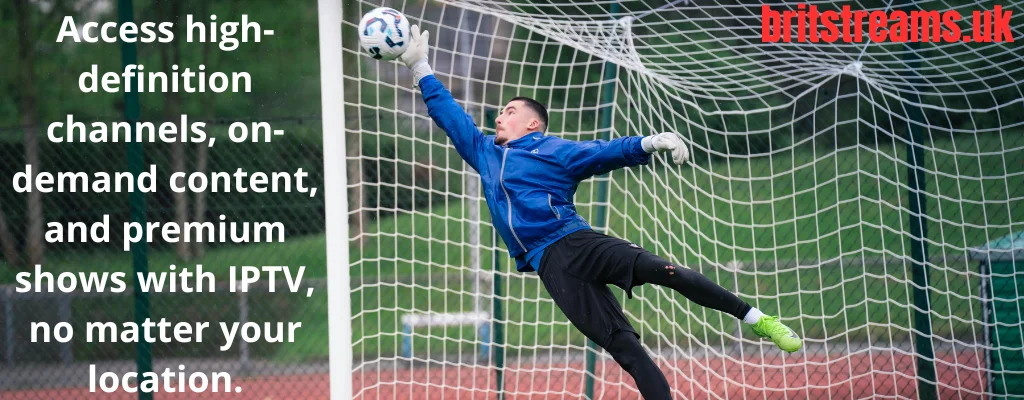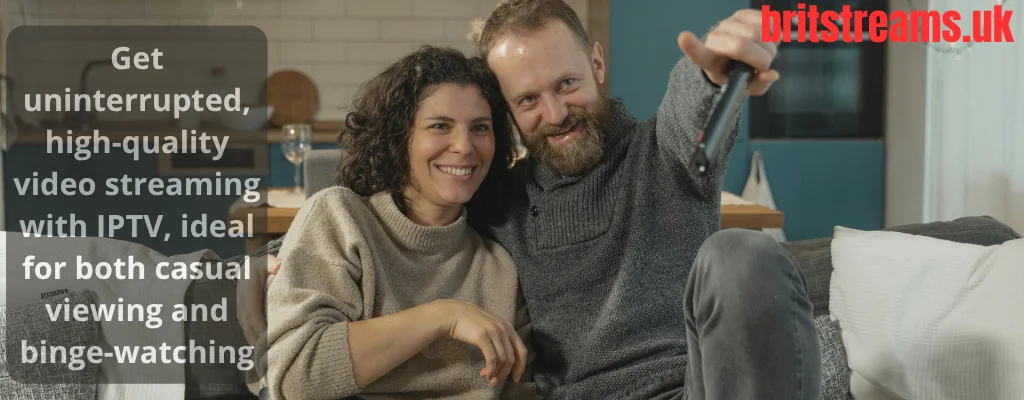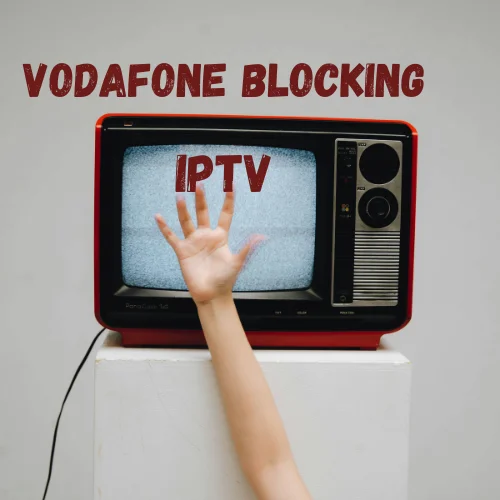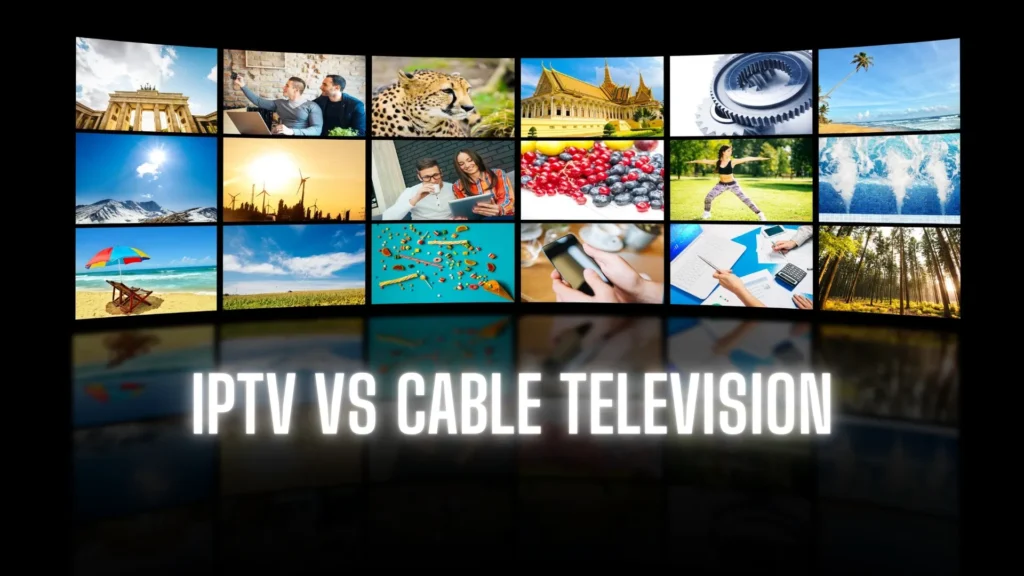A few years ago, if someone had mentioned IPTV to me, I probably would have shrugged it off. I had been a loyal user of traditional cable TV for years, enjoying what I considered to be a stable and reliable service. But as the world of streaming services began to take over, I decided to venture into IPTV and see what all the fuss was about. Little did I know that my viewing habits would change drastically, and I would discover an entirely new world of television content and convenience.
In this article, I’ll share my personal experience with IPTV, explain what it is, and delve into why Vodafone blocking IPTV content in 2025. As someone who has come to appreciate the flexibility and convenience that IPTV offers, I feel it’s important to understand the motivations behind these actions by major Internet Service Providers (ISPs) like Vodafone. From my perspective, understanding IPTV in the context of legal challenges, service quality, and the growing popularity of streaming platforms is crucial for viewers like you and me.
Table of Contents:
- What is IPTV? A Quick Overview
- The Advantages of IPTV: My Personal Experience
- Vodafone Blocking IPTV: What’s Really Happening?
- The Rise of IPTV and Why it Matters
- IPTV Providers: How They Operate and What They Offer
- Legal Challenges Faced by IPTV Services
- Why Vodafone is Blocking IPTV Content
- The Impact on Users: My Experience with Vodafone Blocking IPTV
- What Are the Alternatives to Vodafone Blocking IPTV?
- Conclusion: The Future of IPTV in a Regulated World
What is IPTV? A Quick Overview

At its core, IPTV (Internet Protocol Television) is a method of delivering television content through the internet rather than through traditional cable or satellite systems. This makes IPTV a part of the larger streaming revolution, where content is accessed via the internet using protocols that transmit video data to your device. Essentially, IPTV allows users to watch live TV, on-demand content, and even recorded shows using internet connections.
In simple terms, instead of relying on satellite dishes or cables, IPTV uses your internet connection to stream content to your TV, computer, tablet, or even phone. This shift to internet-based television is one of the reasons why IPTV has become so popular, offering an alternative to the more expensive, rigidly structured traditional TV services.
My personal journey with IPTV started when I decided to try an IPTV free trial to see if it was as good as everyone was saying. I quickly realised that it offered a much broader range of content than traditional cable, including niche international channels and on-demand services that catered to every taste and preference.
GET YOUR SUBSCRIPTION NOW
The Advantages of IPTV: My Personal Experience
When I first made the switch from cable TV to IPTV, I was initially sceptical. How could something that streamed over the internet possibly match the quality and reliability of my cable subscription? But after a few weeks of using IPTV, I was hooked. The advantages were undeniable, and I soon realised that IPTV was much more than just a trend – it was the future of television.
One of the main reasons I switched to IPTV was the cost savings. With traditional cable, I was paying a hefty monthly fee for a package that included channels I never watched. IPTV, on the other hand, allowed me to choose the content I wanted to watch and pay only for the channels I needed. In many cases, services like Prime TV IPTV offered access to hundreds of channels, movies, sports events, and on-demand programming, all for a fraction of the price of a cable subscription.
Another significant advantage of IPTV is its flexibility. With IPTV, I wasn’t tied to a specific TV or device. I could stream content on my phone, laptop, or even my smart TV, all with the same subscription. This level of versatility was something traditional cable simply couldn’t offer. IPTV providers were also increasingly offering features like catch-up TV, which allowed me to watch shows I had missed at my convenience, rather than following rigid broadcast schedules.
I also had access to international content thanks to IPTV. In ways that were just not conceivable with regular TV providers, I was able to watch overseas networks, learn about other cultures, and take in international sporting events.
Vodafone Blocking IPTV: What’s Really Happening?
As I was getting more immersed in the world of IPTV, I began to notice something concerning – Vodafone, one of the leading ISPs in the UK, had started blocking IPTV content. This was a surprising move, as Vodafone had been known for its broad internet services and had even offered packages that supported IPTV streaming in the past.
After digging deeper, I found out that Vodafone’s decision to block IPTV content was not as straightforward as it seemed. On the surface, it appeared to be a move aimed at improving internet security and protecting copyright holders. However, as I looked into it more, it became clear that this decision was part of a broader trend where ISPs were taking more aggressive steps to control IPTV access, largely due to the rise of illegal IPTV services.
Vodafone’s blocking efforts were primarily targeting IPTV streams that they considered to be unlawful, particularly those offering pirated content. With the rise of illegal IPTV services, which provide access to premium channels and movies without proper licensing, ISPs like Vodafone found themselves under increasing pressure from content owners to prevent their customers from accessing these illegal services. In many cases, Vodafone was forced to block access to certain IPTV services to comply with copyright laws and avoid legal action.
The Rise of IPTV and Why it Matters
The rise of IPTV services over the past decade has been nothing short of remarkable. As internet speeds improved and streaming technologies became more advanced, IPTV providers began to offer an alternative to traditional cable and satellite TV. According to my experience, IPTV is much more than just a replacement for traditional TV – it’s a game-changer in how we consume content.
IPTV providers have transformed the television experience, offering on-demand content, interactive services, and the ability to customise viewing experiences. Unlike traditional television, where you’re limited to scheduled broadcasts, IPTV allows you to watch content whenever you want, without being confined by time slots. This is one of the key reasons why IPTV has grown so quickly in popularity.
The ability to watch live TV, stream on-demand movies, and access a wide variety of international content has made IPTV an attractive option for many viewers, including myself. Services like Prime TV IPTV offer users a broad selection of channels and programmes, often at a fraction of the cost of traditional TV subscriptions.
IPTV Providers: How They Operate and What They Offer

IPTV providers operate by delivering television content over the internet rather than through traditional satellite or cable means. To access IPTV, you typically need a compatible device (like a smart TV, set-top box, or mobile phone), an internet connection, and a subscription to an IPTV provider.
From my personal experience, choosing the right IPTV provider can make a significant difference in the quality of your viewing experience. Some providers offer free trials, allowing you to test out their service before committing to a subscription. This was one of the reasons why I was able to experiment with different IPTV services and find the one that best suited my preferences.
One standout provider in my journey was Prime TV IPTV, which offered an impressive selection of live channels, movies, and sports events. The user interface was easy to navigate, and the quality of the streams was excellent. Whether I was watching a live football match or catching up on my favourite TV series, the service consistently delivered.
Legal Challenges Faced by IPTV Services
The main reason Vodafone and other ISPs are blocking IPTV services is the growing concern over illegal IPTV streams. While legitimate IPTV services provide legal access to licensed content, many illegal IPTV providers offer pirated access to premium channels and movies without permission from the content owners. These pirated services not only infringe on copyright laws but also pose a significant financial risk to content creators, broadcasters, and the entertainment industry.
In my own experience, I’ve encountered several IPTV providers that claim to offer access to premium content without proper licensing. These services often operate in a grey area, offering streams of popular channels and events without permission, making it difficult for users to know whether they’re breaking the law by accessing them.
Vodafone’s efforts to block IPTV content are part of a broader initiative to curb illegal IPTV streaming and protect copyright holders’ interests. By blocking access to these unlicensed services, Vodafone aims to avoid potential legal issues and ensure that their users are only accessing content through authorised channels.
Why Vodafone is Blocking IPTV Content
Vodafone’s decision to block IPTV content in 2025 was likely influenced by several factors. Primarily, the increasing prevalence of illegal IPTV services has put pressure on ISPs to take action. Illegal IPTV providers offer access to pirated content, and by doing so, they create legal and financial risks for ISPs like Vodafone.
Another factor contributing to Vodafone’s decision is the ongoing struggle to regulate IPTV services. With the proliferation of low-cost and sometimes free IPTV services, it has become harder for ISPs to differentiate between legal and illegal streams. To avoid potential lawsuits and regulatory scrutiny, Vodafone has opted to block certain IPTV services altogether.
The Impact on Users: My Experience with Vodafone Blocking IPTV

When I first noticed Vodafone blocking IPTV content, it was frustrating. I had become accustomed to the convenience and flexibility that IPTV offered. Being unable to access my favourite channels and shows due to restrictions felt like a step backward. However, I also understood the reasons behind Vodafone’s actions, particularly in relation to illegal IPTV services.
For users like myself, the challenge is finding a legal IPTV provider that offers the same level of access and quality that illegal services provided. While Vodafone’s blocking of IPTV content is a setback, it has also forced me to look for legitimate alternatives that offer the same benefits without the risk of legal issues.
What Are the Alternatives to Vodafone Blocking IPTV?
Despite Vodafone’s decision to block IPTV content, there are still plenty of legitimate alternatives available. Many IPTV providers operate within the bounds of the law and offer high-quality streaming services. As a consumer, it’s important to choose a reputable IPTV provider that offers legal access to content.
In my experience, services like Prime TV IPTV, which offer a legitimate service, have remained unaffected by Vodafone’s blocking efforts. Choosing a provider that offers a free trial can also be a good way to ensure you’re getting the best service for your needs before committing to a subscription.
Conclusion: The Future of IPTV in a Regulated World
As I reflect on my journey with IPTV, I realise that the landscape is evolving. While Vodafone’s decision to block IPTV content in 2025 is a significant development, it’s also part of a broader trend in the industry. The future of IPTV is undoubtedly bright, but it will depend on how providers and ISPs navigate the challenges posed by illegal streaming services.
For viewers like me, IPTV offers unparalleled flexibility, variety, and cost-effectiveness. Despite the challenges faced by the industry, I remain optimistic about the future of IPTV, particularly as legal frameworks continue to develop and improve. With the right precautions and a careful selection of providers, IPTV will continue to be a cornerstone of modern television viewing.



